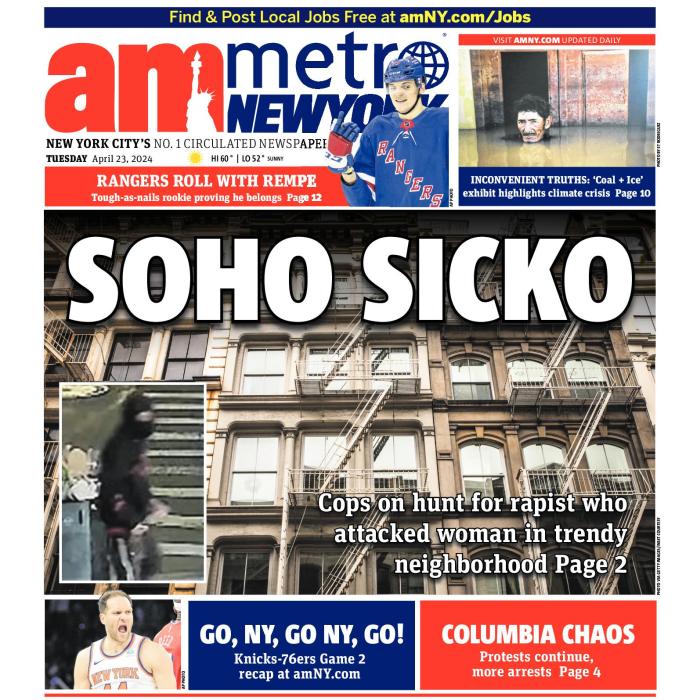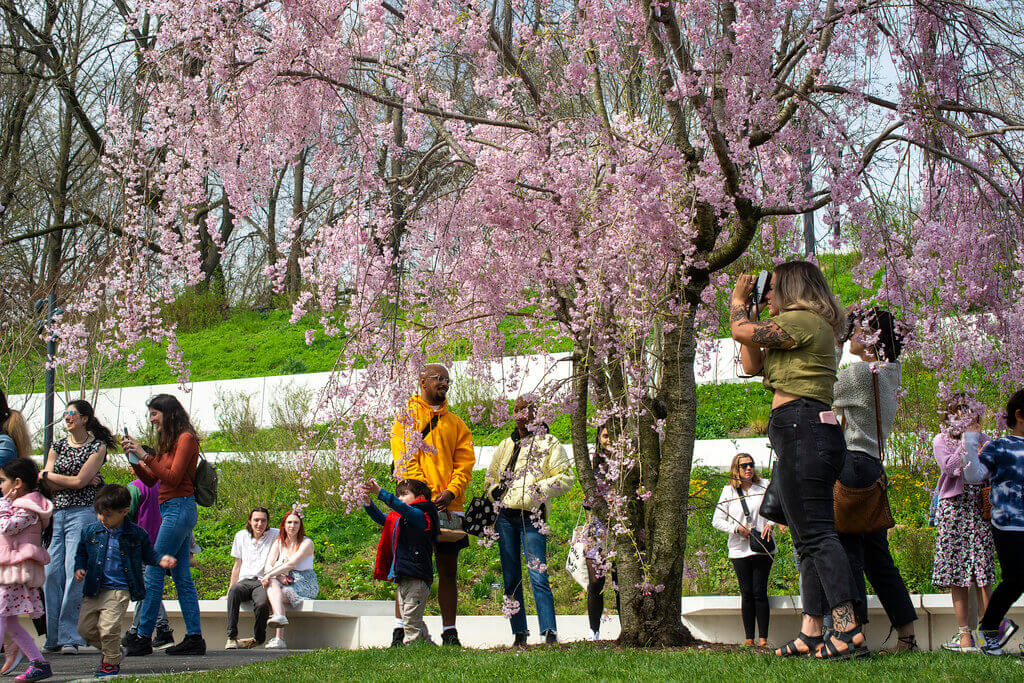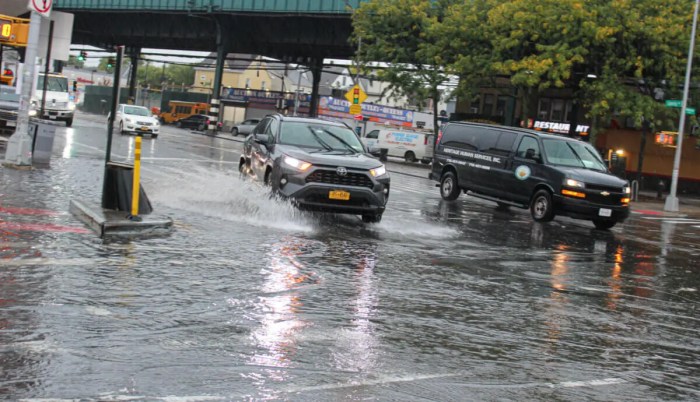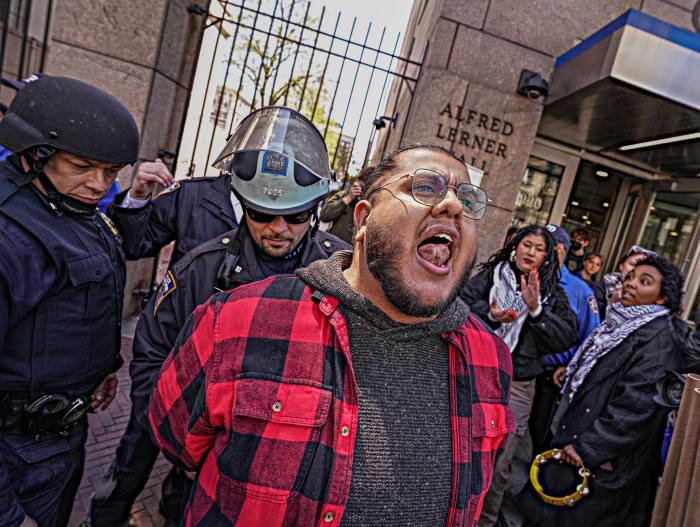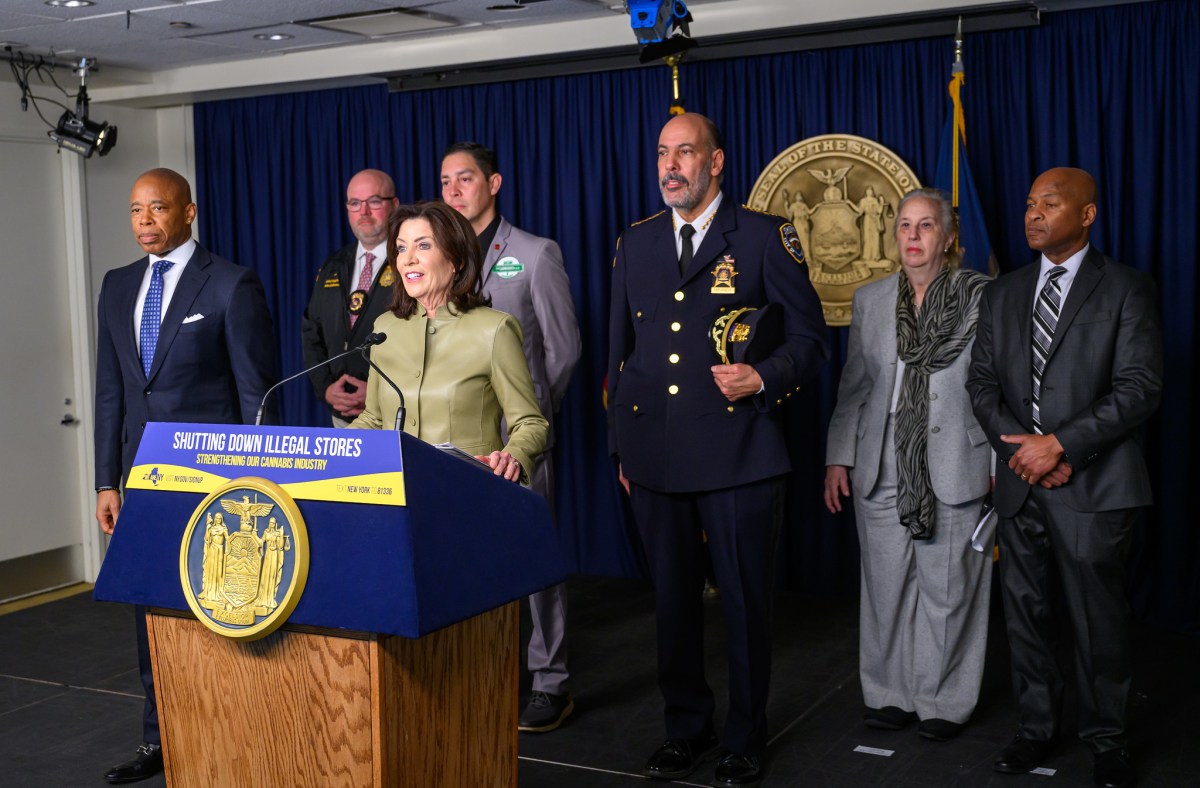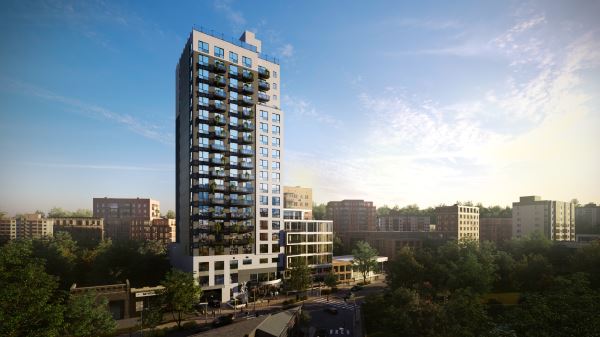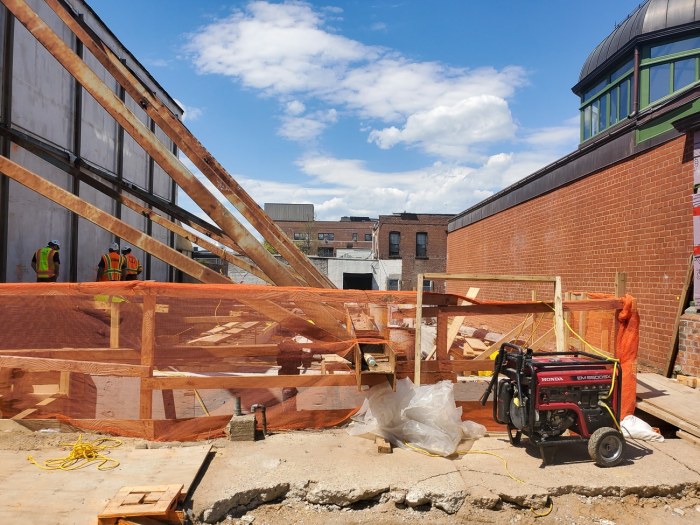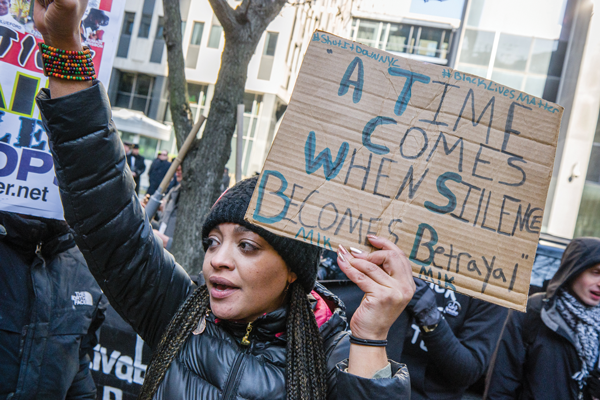
BY ZACH WILLIAMS | For about 1,000 #BlackLivesMatter activists on Martin Luther King Jr. Day, inspiring each other was just as important as spreading the word to passersby about the movement’s demands for police reform and social justice.
Regaining momentum lost in the last month was on the minds of many who marched from Union Square to Foley Square on Mon., Jan. 19, in an effort to “reclaim” Martin Luther King Jr.’s legacy.
Tensions with police were minimal as they rallied down Broadway chanting, singing and demanding a social awakening to ongoing discrimination against people of color.
Protests were held throughout the country on Jan. 19, including a march from Harlem to the United Nations headquarters earlier that day.
“We’re not terrorists. We’re not anti-cop. We’re anti-injustice and anti-brutality,” said Esther Baldwin, an activist who began organizing the march about six weeks ago.
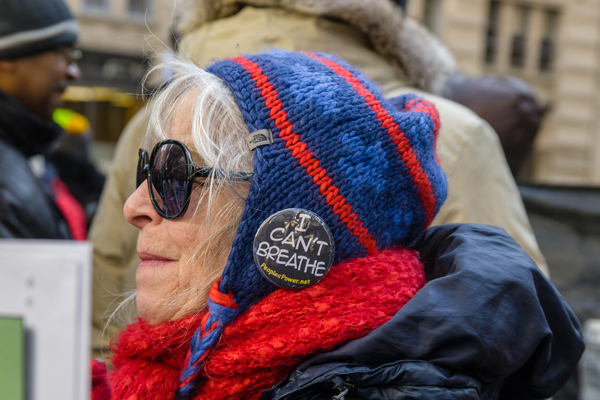 Participants conceded that they indeed lost some ground in recent weeks after tens of thousands of New Yorkers took part in protests in early to mid-December. The fatal shootings of two New York Police Department officers in Brooklyn last month led to calls for a moratorium on demonstrations demanding police reforms. Supporters of the N.Y.P.D. meanwhile have been more vocal since then in portraying the protests as detrimental to public safety and dismissive of the dangers police face in their jobs.
Participants conceded that they indeed lost some ground in recent weeks after tens of thousands of New Yorkers took part in protests in early to mid-December. The fatal shootings of two New York Police Department officers in Brooklyn last month led to calls for a moratorium on demonstrations demanding police reforms. Supporters of the N.Y.P.D. meanwhile have been more vocal since then in portraying the protests as detrimental to public safety and dismissive of the dangers police face in their jobs.
Actions continued after the police deaths but not at the frequency or volume as in the weeks following the Dec. 3 announcement of a grand jury’s non-indictment of Police Officer Daniel Pantaleo, who placed the N.Y.P.D.-banned chokehold on Eric Garner that led to his death. The recent holiday season also disrupted the rhythm of the protests, according to Jonathan Laraque-Ho, a student at Bard High School Early College on the Lower East Side, who has been actively involved in student organizing.
The MLK holiday was an ideal time to pick up the tempo and get people excited once more about the #BlackLivesMatter movement, he added.
“We’re trying to get back on the streets,” he said. “A lot of people have been pretty bored with what’s happening over the break.”
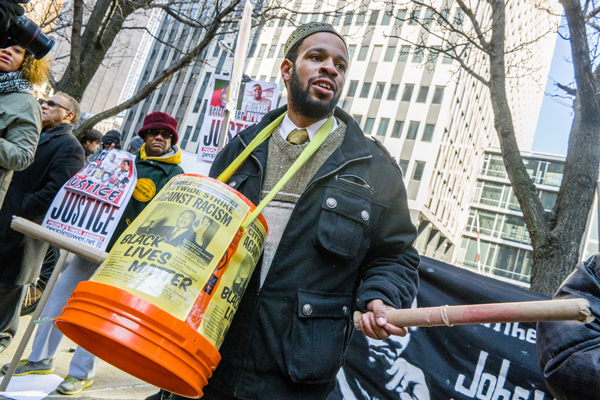
On a day when many people, including President Obama, volunteer in local communities in commemoration of MLK Jr., remembering the civil rights leader as a non-violent rabble rouser who challenged authority is important to continuing efforts to battle contemporary racism in America, activists said on Monday.
The newly released film “Selma” inspires young people to view their current activism from an historical perspective stretching back 50 years to King’s work, according to Ash Laraque-Ho, older sister to Jonathan.
Though King is best known for advocating for suffrage for African-Americans, social issues — such as poverty within an economic system tilted toward white people —became a more prominent theme in his work in the years before his 1968 assassination. Activists are quick to note that gaps in employment, income and education between people of color and white Americans persist to the present time.
Reforming a judicial system where people of color often receive disproportionately harsher punishments for drug offenses compared to whites is one way to bridge such divisions, according to Andrew Slack of Brooklyn. More ethnic diversity within the N.Y.P.D. would help as well, according to a Lower East Side resident named Omar, who declined to give his last name.
About half of the department’s officers are white.
“It’s not just about police brutality — it’s the war on drugs,” he added about the issues at hand as he marched down Broadway toting a book entitled “The New Jim Crow.”
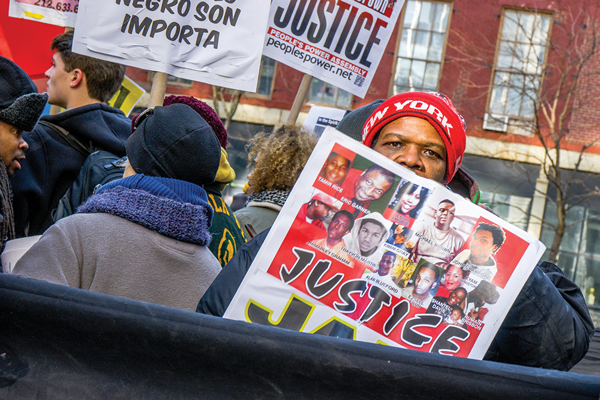 “Broken windows,” though — the police doctrine that enforcement against low-level crime prevents more serious offenses — remains a target of activists. Police supporters note that Garner had a history of petty offenses. His death would not have happened had he not resisted officers’ efforts to arrest him, they say.
“Broken windows,” though — the police doctrine that enforcement against low-level crime prevents more serious offenses — remains a target of activists. Police supporters note that Garner had a history of petty offenses. His death would not have happened had he not resisted officers’ efforts to arrest him, they say.
Akai Gurley was fatally shot by Police Officer Peter Liang while walking down a stairwell in Brooklyn public housing on Nov. 20. The shooting was an accident, according to police.
Relatives of both Gurley and Garner spoke at Foley Square on Monday, noting that circumstances of the two incidents aside, police demonstrated a disregard for people of color as the men had lain dying.
A video of the incident that led to Garner’s death shows no effort by medical personnel or police to revive him. Meanwhile, the officer who shot Gurley was reportedly texting his union representative in the minutes following his fatal pull of the trigger.
Activists said they are in the movement for the long haul. Their demands include the firing of Pantaleo, the end of “broken windows,” and greater transparency within the N.Y.P.D., as well as more community involvement in setting department policies.
The example of Martin Luther King Jr. illustrates that ambitions to transform American society take years if not decades to realize. Nonetheless, Erica Garner of Staten Island told the crowd assembled at Foley Square that a certain thought inspires her to continue seeking justice for her father, despite the obstacles ahead in reforming one of the most powerful and respected law enforcement agencies in the U.S.
“What comes to mind for me is that he never gave up,” she said of King.
